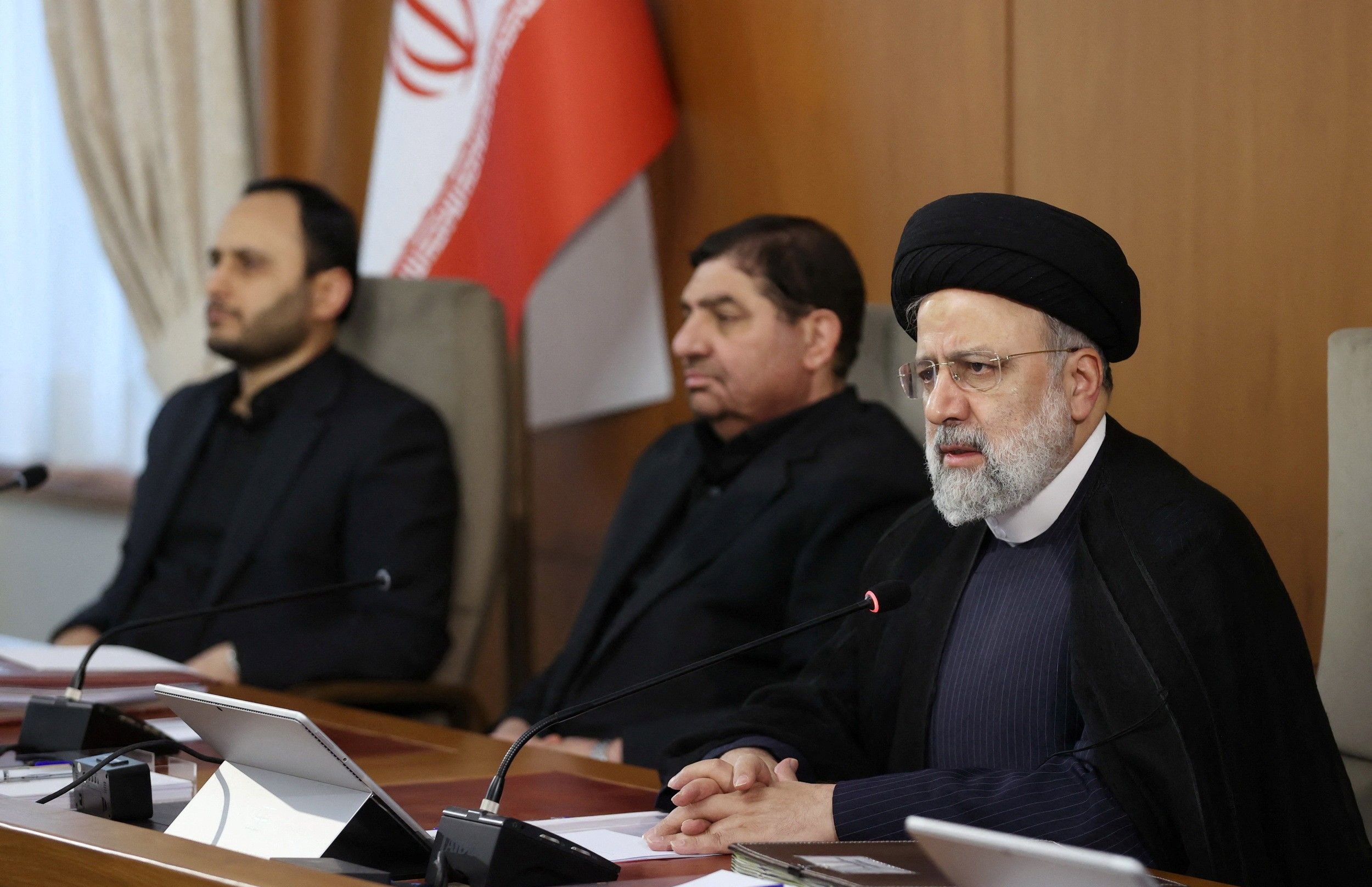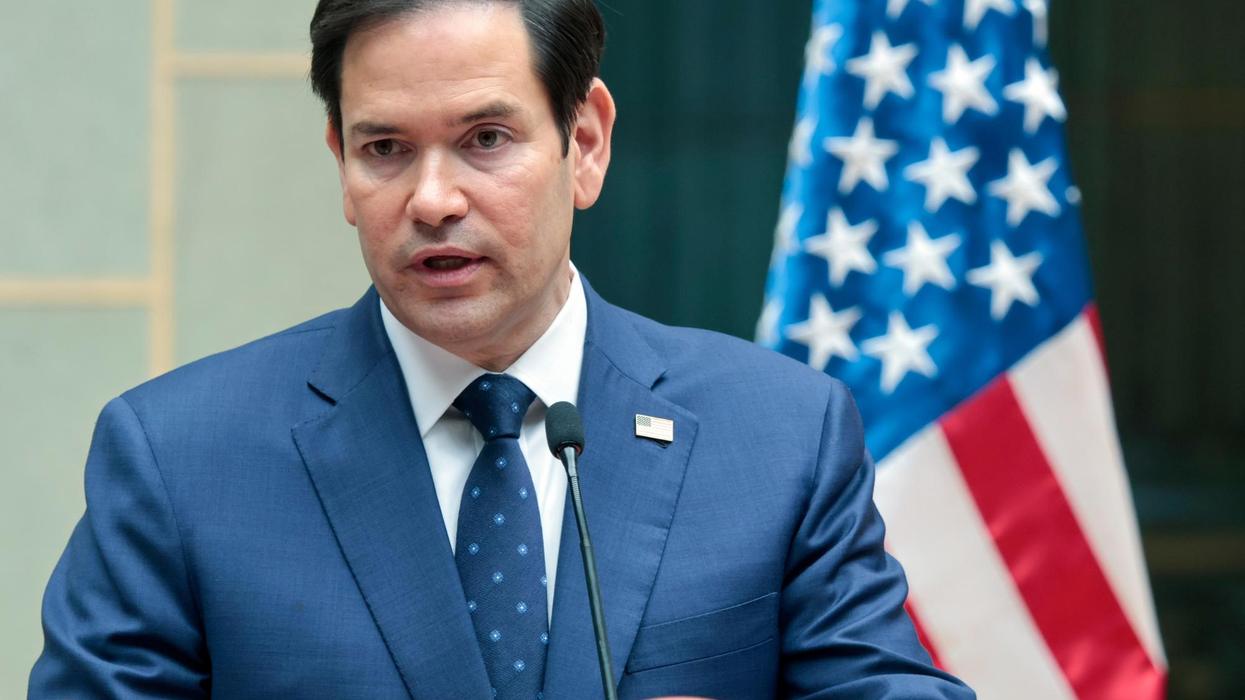Iran’s massive April 13 attack was meant to settle scores for the blow that it suffered when, 12 days before, Israel assassinated two Islamic Revolutionary Guard Corps (IRGC) generals and five other officers, three of whom directed operations in Yemen, Iraq, and Lebanon.
With some of its highest-ranking officers eliminated in one fell swoop on what was legally Iranian sovereignty territory, the IRGC was determined to show on the home and regional fronts that it is still a potent and lethal fighting machine. The purpose of Iran’s assault was not only to make Israel pay, but also to blot out the shame for what IRGC leaders experienced as a day that will live in infamy.
The task facing Iran was how to retaliate without inviting a wider war with Israel and especially the United States. The regime’s effort to address this dilemma was not hidden from public view. Indeed, in the days leading up to its retaliation the semi-official press was full of warnings not to fall into “Netanyahu’s trap.” But if Tehran’s perception that Israel’s April 1 assault was designed to produce an overreaction by Iran, its retaliation has created new realities and new risks. Iranian leaders insist that the attack has forged a “new equation” for deterrence and thus are hoping—or praying—that, in the words of a statement issued by Iran’s U.N. delegation, “the matter can be deemed concluded.” But whether Tehran can sustain this new reality and also avoid a wider conflagration will depend on at least two other key players: the United States and Israel.
The regional arena: Sustaining resistance before April 1
The highest-ranking Iranian officer killed on April 1 was Brigadier General Mohammad Reza Zahedi, an IRGC Al-Quds Force commander who played a major role in coordinating Iran’s “resistance” strategy with armed groups in Lebanon, Syria, Yemen, the West Bank and Gaza. To appreciate the symbolic and strategic significance of this loss for Iran, it should be noted that in 1998 Zahedi was appointed commander of the IRGC Quds Lebanon Force by Major General Qassem Soleimani, the architect of Iran’s regional security, who was killed on January 2020 by a U.S. drone strike outside Baghdad airport. In the three years following his killing, the regime appointed a series of commanders in a determined bid to sustain its resistance strategy.
Zahedi’s role in this effort was pivotal, especially after he was named as the Al Quds Force Syria and Lebanon commander, succeeding Seyyed Razi Mousavi, who was assassinated in December 25, 2023, by Israeli air strike. In short, Zahedi was killed in a line of IRGC commanders, all of whose deaths the regime failed to prevent. While he and the other IRGC officers who died next to him were celebrated as “martyrs,” Israel’s superior technological and military capacities made their sacrifice possible. In a long shadow war that has come into the full light of direct Israeli-Iranian conflict, Iranian leaders had good cause to worry that Israel has had the deadly upper hand.
This concern was in fact amplified when, in the aftermath of Hamas’s October 7 “Al-Aksa Storm” atrocities and Israel’s ensuing military onslaught, Iranian leaders within or close to the ruling circles of the regime warned that by failing to respond forcefully through its regional partners, Iran’s capacity to deter Israel had been greatly weakened. Nevertheless, the question was how to shore up what might be called a “no war, no peace” resistance strategy that still depended on maintaining this increasingly precarious formula.
Seeking to sustain this balancing act, Esmail Qani, the chief of Iran’s Al-Quds Forces, together with, IRGC Commander in Chief Major General Hossein Salami, met with militia commanders from Yemen, Iraq, Lebanon and Syria in Tehran in February. “At the end,” one source reported, “all the participants agreed that Israel wanted to expand the war and falling in that trap should be avoided as it will justify the presence of more U.S. troops in the region.” Not long after, Iran persuaded its allies in Iraq to cease attacks on U.S. forces. As for the Lebanon front, Iran pressured Hezbollah to modulate the escalating tit-for-tat strikes between it and Israel. In this way, Tehran tried to sustain the basic if increasingly precarious rules of the deterrence game with Israel.
Iran retaliates: Creating a new (and old) resistance equilibrium?
Apart from the huge strategic loss that it inflicted by directly hitting IRGC leaders on what was in effect Iranian sovereign territory, Israel’s April 1 attack violated those very rules. Henceforth, the nature of the “trap” facing Iran was more direct and menacing because it seemed that Israel was now determined to compel Iran to respond in ways that would open the door to a wider conflict not only with Jerusalem but also potentially with Washington as well.
Thus, an adviser to President Ebrahim Raisi issued a statement warning “the U.S. leadership not to get dragged into Netanyahu's trap.” But at the same time, commentaries in the semi-official press cautioned against a “suicidal reaction” and urged Iran’s leaders to “behave wisely,” given “the potential pitfalls of unrestrained aggression against Iran.” These op-eds seemed to imply that Iran’s retaliation would –or should --create a new balance of deterrence with Israel that protects Iran without inviting a large military conflict.
After April 13: New risks and dangers for Iran and Israel
It is still too early to tell whether Iran has succeeded in reestablishing a new sweet (or bitter) spot that will enable it to hurt its enemies while avoiding all-out war. It could be that by targeting its 300 or so missiles and drones at Israeli military targets –an assault that with the exception of one young Bedouin girl who was wounded, failed to produce a single civilian or military casualty--Iran has actually achieved its purpose. Paradoxically, Israel’s success--with the support of the U.S. and other countries--in destroying the vast majority of these missiles may have helped to redefine a new, if perhaps even more dangerous, rulebook for Israel-Iran deterrence. Statements by IRGC leaders show that they are hoping this is true and that “with this operation as complete, this operation has ended.”
At the same time, however, Iran’s retaliation has created new dynamics that should worry its leaders. The role that the U.S., together with France and Britain (and quite possibly several Arab states including Jordan), played in knocking out Iranian drones and missiles has created a new reality. Hence forth, Israel’s deterrent capacity is inextricably linked to a military partnership with the U.S. and, in effect, some of its Western allies. This fact has grabbed the attention of Iran’s leaders, who, prior to and after their assault, openly warned Washington to “stay out of it.” Now that the U.S.—and the Biden White House-- is very much in it, Iran will have to carefully contemplate how to retool resistance.
Moreover, Tehran’s attack has refocused global and regional attention away from Gaza and onto Iran. In the coming days and weeks, it is possible that the U.N. Security Council will convene not to push for a Gaza ceasefire, but rather to press for a new resolution focusing on the consequences of Iran’s April 13 attack. This, of course, will be good news for the government of Prime Minister Benyamin Netanyahu but will make Iran’s leaders nervous.
And yet the new reality created by Iran’s attack poses hard choices for Israel. That its deterrent capacity is now tied to the U.S. could constrain Israel’s leaders. Indeed, Biden telegraphed this message in a discussion with Netanyahu in which he reportedly affirmed U.S. support while not only warning Israel not to retaliate in ways that would escalate the conflict but also asserting that Washington would not be a partner to any Israeli military retaliation on Iran.
Nor will the administration allow the Israel-Iran conflict to deflect it from pushing for a Gaza ceasefire. Biden distrusts and dislikes Netanyahu today as much or more than ever, a sentiment that was probably reinforced by Israel’s April 1 attack on the Iranian consulate in Damascus. For even if it was not designed to pull the U.S. into battle with Iran, it has created what Marxists might call an “objective” trap that the White House is struggling to avoid.
Moving forward, the administration might redouble its quest for a diplomatic solution to the Gaza war (and Palestinian- Israeli conflict) even as it warily watches an Iranian regime that hopes that it has a new recipe for deterrence that will allow Tehran to have its resistance kabob and eat it too.
- Biden should not follow Netanyahu into war with Iran ›
- Is Israel's plan to draw the US into a war with Iran? ›
- Raisi’s death throws a wrench into internal Iranian politics | Responsible Statecraft ›
















